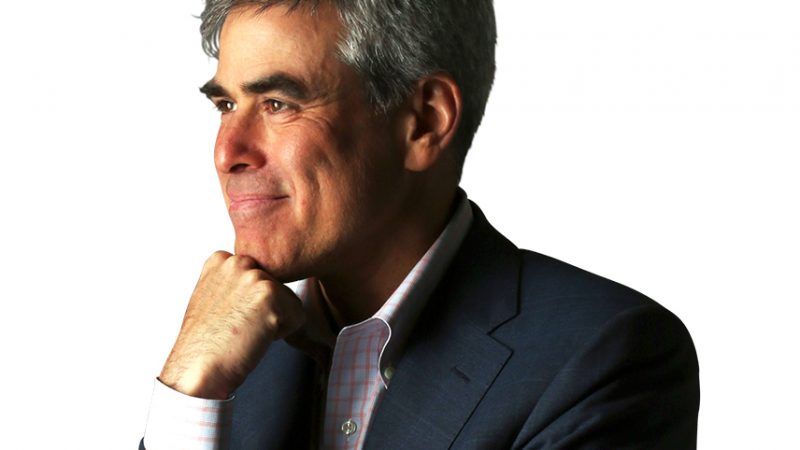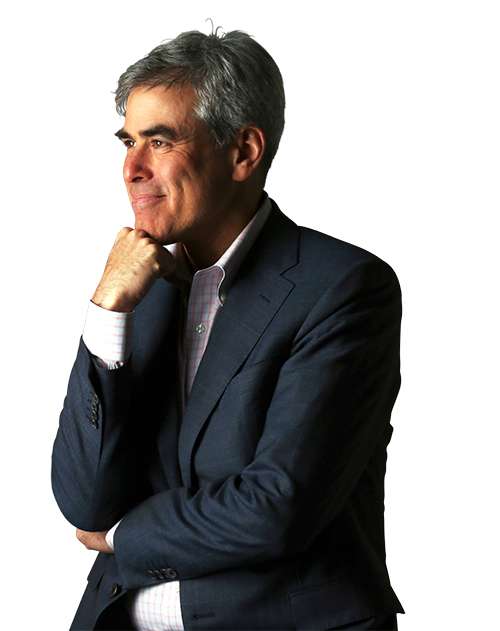Jonathan Haidt Wants His Students to Love Dissent—and John Stuart Mill


Jonathan Haidt, author of the 2012 best-seller The Righteous Mind: Why Good People Are Divided by Politics and Religion, co-founded a network of academics committed to open inquiry and viewpoint diversity called Heterodox Academy in 2015. When college students began to act as if hearing from speakers they disagree with "bring[s] dangers rather than benefits," he says, he was ready to convince them otherwise. Working with John Stuart Mill biographer Richard Reeves, Haidt produced a condensed, illustrated version of chapter 2 of Mill's classic On Liberty, which Haidt considers "the best set of arguments for free speech ever written." That condensation, titled All Minus One, can be purchased or downloaded at heterodoxacademy.org/mill. Senior Editor Brian Doherty spoke to Haidt in April about why these ideas are needed now more than ever.
Q: Mill wrote that debate is beneficial in part because it exposes us to facts and ideas we can learn from. But are college speech suppressors open to an argument that depends on accepting that they might not already have the total truth?
A: When social forces are perfectly aligned to support your ideology, you are unlikely to change it. But that's not true for most high school students and college freshmen. I think that although almost everyone supports free speech in the abstract, support drops when pitted against other values. If we can [teach people about the dangers of] confirmation bias and other failures of human cognition, we can convince them that we need others to challenge us and make us smarter. The second chapter of On Liberty is about this problem of society deeming certain views to be unairable. The First Amendment gives us extraordinary freedom from government censorship, but in the age of social media, increasingly people are afraid to speak up and challenge ideas that they know to be wrong [for fear of social persecution]. This is why Mill is especially needed.
Q: What topics aren't being debated the way they should be?
A: Name any topic that is politically valent. Certainly race and gender but also poverty, immigration, inequality. These are the most pressing issues of our time, and we need a robust discussion with people doing their best thinking.
We had a discussion in the wake of the [memo written by fired Google employee James Damore] about whether gender differences are relevant to outcomes in computer science. Almost all psychologists who wrote on this did say it's a combination of nature and nurture. Yet there was enormous fear to apply that systemically and say it could influence the distribution of outcomes we see. Note that these gender differences are not about ability—those are tiny—but there are gender differences in interest, and those do seem relevant to career choice. Many psychologists seem afraid to say prenatal hormones could be part of the story.
Q: What do you say to the idea that defending free speech nowadays is inherently right-wing?
A: For most of the last 100 years, free speech was championed by the left; it was an important tool in the civil rights struggle and all the rights struggles. Today, people in their teens and 20s tend to put diversity and inclusion above freedom of speech. On the left you hear that it's just white frat boys [demanding] the freedom to sing racist songs on campus. But those of us who think free speech is important are focused on the necessity of dissent when discussing ideas. We need to not be distracted by very rare cases of ugly overt racism and focus on everyday occurrences of people afraid to speak up.
I'm trying to add to the debate the idea from moral psychology that intuitions come first and strategic reasoning second. So the more passionately we feel about something, the more likely it is that our reasoning is warped and unreliable. Life is complicated, the social sciences are complicated, and to the extent policy beliefs become markers of group membership, we can guarantee that every group is wrong on many points but will never know it.
This interview has been condensed and edited for style and clarity.
This article originally appeared in print under the headline "Jonathan Haidt Wants His Students to Love Dissent—and John Stuart Mill."


Show Comments (1)